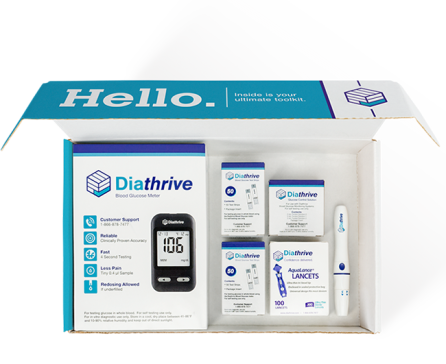
People diagnosed with type 2 diabetes are often started on metformin, one of the most common and trusted diabetes medications out there. Metformin works to lower blood sugar by increasing cell sensitivity to insulin, as well as reducing the amount of glucose your liver produces, making it also a good choice for those with prediabetes and polycystic ovary syndrome, who are also at risk of being unable to manage high blood sugar levels. But, just like other medications, this drug has common side effects. If you use metformin immediate-release (IR) you have probably experienced some of the top listed side effects of metformin [1]: nausea, vomiting, stomach upset, diarrhea, heartburn. Any of these a little too familiar since you started taking metformin? Additionally, metformin IR is normally prescribed to be taken twice daily, as they are effective for only a short amount of time, which increases the chance of missing doses.
Metformin Minus the Upset Stomach
If you struggle with any of these problems, don't let it stop you from taking your medication as directed by your doctor (with the exception of more serious side effects). If you've already stopped using metformin because of these troubles, maybe it's time to try again. Consider talking to your healthcare provider about metformin extended-release (ER). Metformin ER is prescribed as once per day, improving adherence, and thus insulin sensitivity and glucose levels, for those using it. While it may not eliminate all side effects, ER could help you reduce or get rid of those stomach pains you may be experiencing while still enjoying the better blood glucose maintenance and long-term health. Studies and reported experiences have shown that people using ER maintain better glycemic control, experience less gastrointestinal side effects, and have an overall better experience [2, 3, 4].
Other Side Effects of Metformin ER
Unfortunately, a few other drug information characteristics of metformin won't change with the switch to extended-release. Other common side effects you may still notice include weight loss, unpleasant metallic taste in the mouth, reduced vitamin B12 levels and bloating. More serious side effects you should discuss with your physician include severe tiredness, trouble breathing, and muscle pain. Those with a history of heart failure, heart attack, diabetic ketoacidosis, kidney disease/kidney problems, liver disease, low blood sugar, and those taking blood pressure medication should be sure to thoroughly discuss these conditions with their physician, as metformin may not be preferable for treatment.
Finally, though not common, patients who are already at risk of lactic acidosis due to other medical conditions have a rare but existent chance of lactic acid build-up.
If you are paying too much for metformin, take a look at GoodRx and see if they can help you manage your diabetes management costs.
References:
[1] https://www.webmd.com/drugs/2/drug-11285-7061/metformin-oral/metformin-oral/details
[2] https://www.ncbi.nlm.nih.gov/pmc/articles/PMC5440005/
[3] https://www.medscape.com/viewarticle/845753
[4] https://www.diabetes.co.uk/forum/threads/metformin-vs-metformin-extended-release.124740/





